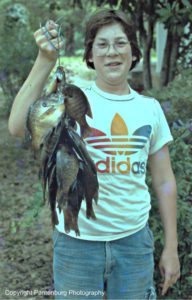
My brother Michael, here at age 14, started fishing with me when he was young. We still love catching, cooking and eating panfish.
1. Catching is important: For kids, this is a numbers game. They don’t care about size – it’s all about action and quantity.
My kids and my nephew John Pickens all started fishing at Shevlin Pond, a stocked kids’ trout pond near Bend, Oregon. Success was virtually guaranteed.
Then they graduated to fishing on the John Day River in northeastern Oregon. The river is loaded with aggressive smallmouth bass, and the youngsters upped their game to using lures. Fifty fish days were common.
River fishing was combined with float trips, and there was always a lot to see and do.
2. Keep it simple: Kids don’t need elaborate gear. My kids all started out with push button reels and casting rods – Mitchell 33 reels specifically. This is the same type combo I started with many years ago. A few small hooks, a few 1-inch bobbers and sinkers are all you need to get started.
Each of my kids got their own tackle boxes and we’d go to the fishing section of an outdoors store to pick out lures. My daughter chose several color-coordinated lures and arranged them so they looked good displayed in the tray. Incidentally, she chose good, effective ones.
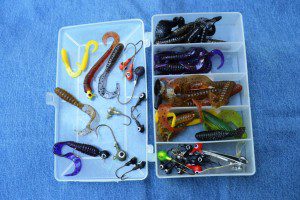
This pocket-sized box holds all the lures needed for a day of smallmouth bass fishing on Oregon’s John Day River.
3. Keep trips short: The younger the child, the shorter the attention span. Catching fish may not be their first priority. Take breaks for rock skipping, enjoying some beach time, or whatever keeps them happy and lets them enjoy the outdoors.
Remember, fishing is a gateway activity to enjoying other outdoor activities.
4. It needs to be fun : If you want your kids to go fishing again, the “fun” part is most important. Don’t force the youngster to watch their pole if the fish aren’t biting. A nature walk to look for rocks or flowers may be more fun, and awaken an interest in other natural things. On hot days, swimming is always a good choice.
5. Patience: Remember that it’s not just your fishing trip, it’s their fishing trip too. You will be unsnagging lines, baiting hooks and probably not fishing much yourself. The quickest way to turn children off to fishing is to get frustrated with them. Keeping the outing short – under an hour for beginners.
6. Snack breaks: Pack a cooler with drinks, sandwiches and lots of snacks like granola bars, crackers, peanuts and a treat or two. Fish for 30 minutes or so and then take a break. Fish for another period of time and take another break. Snacks breaks can help at moments of frustration and will keep the kids interested longer.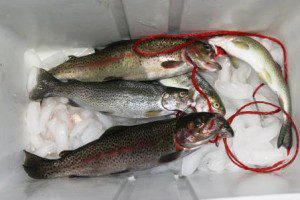
7. Remember the essentials: Besides fishing stuff take sunscreen, bug repellent, a few Band-Aids and a fishing license if required. Pick up a copy of the fishing seasons and rules, at your local license vendor or Fish and Game office.
8. Never waste teaching moments: Fishing is not only about just catching fish. Capitalize on moments to tell them about bugs, birds, plants and fish. The outdoors classroom is best, and kids will soak it up like a sponge.
9. Keep a few: Catch and release is fine, but it’s a good idea to keep a few if regulations permit. Kids need to know where food comes from. Get them involved in cleaning and cooking their catch. Make foil wraps and cook them on the grill.
10. Leave the fishing area better than you found it: Be a good role model and pack out garbage. Encourage kids to help. These lessons mold responsible and conscientious anglers helping to ensure the future of our sport.
Fishing is one of those activities where people can interact, regardless of age. Grandparents and children can enjoy the same outings and everyone can participate in a fish fry.
Get the kids hooked on fishing early!
Please click here to check out and subscribe to the SurvivalCommonSense.com YouTube channel – thanks!

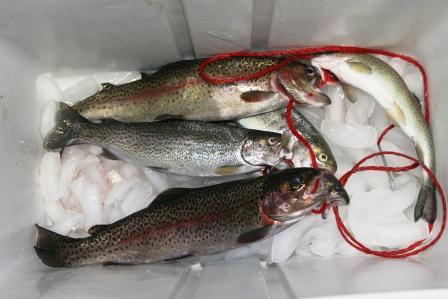

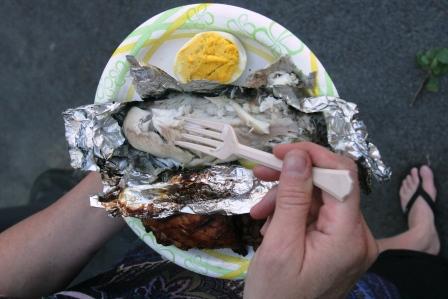
Leave a Reply